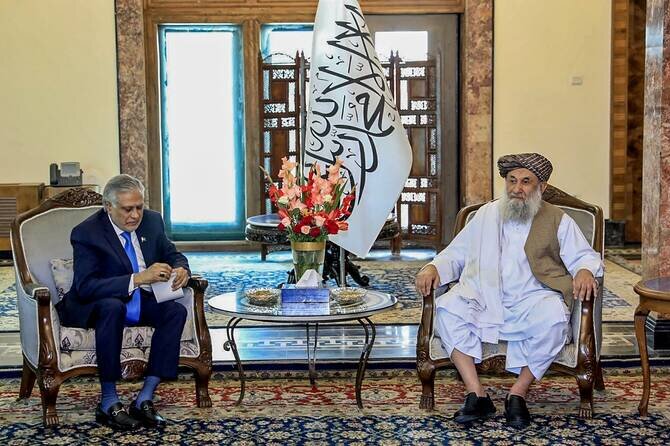
Afghanistan and Pakistan Resume Peace Talks in Istanbul
Both nations seek a lasting truce following recent violence and previous ceasefire agreements.
Pakistan and Afghanistan have announced the resumption of peace talks in Istanbul, scheduled for Thursday.
These negotiations follow a previous round that concluded without securing a lasting truce between the two countries.
Notably, the last month witnessed military clashes between the South Asian neighbors, resulting in significant casualties—marking the most severe such violence since the Taliban's return to power in Kabul in 2021.
Following a ceasefire agreement reached on October 19 in Doha, a subsequent round of negotiations took place in Istanbul last week.
However, disagreements over militant groups hostile to Pakistan operating within Afghanistan prevented an agreement on a long-term truce.
The Pakistani government emphasizes the need for peace and stability across the region, with Defense Minister Khawaja Asif expressing hope that wisdom will prevail.
The head of Pakistan's military intelligence wing, Asim Malik, is leading the Pakistani delegation, while the Afghan side will be led by Intelligence Chief Abdul Haq Wasiq.
The talks aim to prevent further violence and address longstanding tensions between the countries.
Both nations have experienced fluctuating relations over the years, with Islamabad accusing the Taliban of harboring the Pakistani Taliban—a separate militant group that has engaged in conflict with Pakistan's military.
Despite the October ceasefire, incidents of violence along their 2,600-kilometer border have continued, leading to multiple casualties on both sides.
The recent escalation stems from airstrikes by Pakistan targeting the head of the Pakistani Taliban in various locations, including Kabul, which prompted retaliatory attacks from the Afghan Taliban administration against Pakistani military posts.
The ongoing peace talks in Istanbul are a critical step towards resolving these longstanding issues and preventing further violence between Afghanistan and Pakistan.
These negotiations follow a previous round that concluded without securing a lasting truce between the two countries.
Notably, the last month witnessed military clashes between the South Asian neighbors, resulting in significant casualties—marking the most severe such violence since the Taliban's return to power in Kabul in 2021.
Following a ceasefire agreement reached on October 19 in Doha, a subsequent round of negotiations took place in Istanbul last week.
However, disagreements over militant groups hostile to Pakistan operating within Afghanistan prevented an agreement on a long-term truce.
The Pakistani government emphasizes the need for peace and stability across the region, with Defense Minister Khawaja Asif expressing hope that wisdom will prevail.
The head of Pakistan's military intelligence wing, Asim Malik, is leading the Pakistani delegation, while the Afghan side will be led by Intelligence Chief Abdul Haq Wasiq.
The talks aim to prevent further violence and address longstanding tensions between the countries.
Both nations have experienced fluctuating relations over the years, with Islamabad accusing the Taliban of harboring the Pakistani Taliban—a separate militant group that has engaged in conflict with Pakistan's military.
Despite the October ceasefire, incidents of violence along their 2,600-kilometer border have continued, leading to multiple casualties on both sides.
The recent escalation stems from airstrikes by Pakistan targeting the head of the Pakistani Taliban in various locations, including Kabul, which prompted retaliatory attacks from the Afghan Taliban administration against Pakistani military posts.
The ongoing peace talks in Istanbul are a critical step towards resolving these longstanding issues and preventing further violence between Afghanistan and Pakistan.